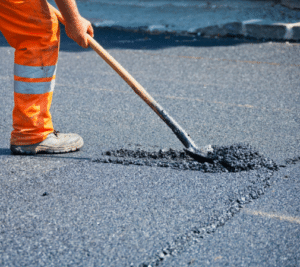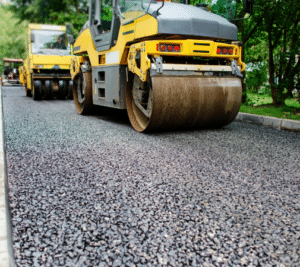When it comes to home construction and remodeling projects, one of the more difficult tasks is appropriately disposing of concrete waste. Concrete is a durable material, so disposing of it can be challenging. Fortunately, you can safely and efficiently handle concrete disposal in several ways. This article will provide all the information you need to know how to dispose of concrete chunks, from renting an inert dumpster to taking it to a local landfill or transfer station. So if you’re wondering how to get rid of that pesky pile of concrete in your backyard, keep reading!
Why Is Concrete Disposal Important?
Concrete disposal is vital for many reasons. Not only does it help reduce the environmental impact of concrete production, but it can also provide businesses with cost savings. Disposing of old concrete helps eliminate landfill waste and preserve natural resources like sand and gravel. Additionally, recycling concrete into aggregate material or using it as fill material on your property can significantly reduce costs associated with purchasing new materials. Proper disposal also ensures that safety precautions are taken when handling heavy materials such as concrete. By taking the time to dispose of old concrete responsibly, you can help protect the environment while saving money in the long run!
Proper concrete disposal is an integral part of helping to reduce environmental impacts and save money. So take the time to dispose of your old concrete and reap the benefits properly!
How To Dispose of Concrete Waste
Several methods of concrete disposal can be used to reduce environmental impacts and save money. Proper concrete disposal is essential for minimizing environmental impacts. With the proper method and adequate safety precautions, you can help reduce your impact on the environment while still being cost-effective.
Methods of Concrete Disposal
1. Inert Dumpster for Concrete Waste
An inert dumpster is an excellent option for disposing of large amounts of concrete waste. It’s made to hold heavy materials like rock, asphalt, concrete, brick, sand, floor tiles, and roof shingles that regular landfills can’t accept. It’s typically taken to the proper facility to be disposed of correctly. The process is relatively simple; you just need to rent an inert dumpster and arrange for it to be picked up and transported away. This cost-effective solution can help you get rid of big chunks of concrete safely and responsibly. Plus, since inert dumpsters are designed to handle large amounts of material simultaneously, you’ll save time and money in the long run!
2. Take it to a Concrete Supplier
If you don’t have access to an inert dumpster, taking your concrete to a concrete supplier is a great alternative. Concrete suppliers are equipped with the proper machinery and tools to recycle old or unused concrete chunks into new materials like gravel or underlayment for roads. All you need to do is contact your local concrete supplier, arrange for pickup, and transport the material yourself. Before dropping it off, ask about any fees associated with disposal – most suppliers charge based on weight or type of material. Once they’ve accepted your concrete waste, they’ll process and recycle it properly!
3. Take it to a Local Landfill or Transfer Station
Taking your concrete waste to a local landfill or transfer station is another option. Most landfills and transfer stations accept organic and inert waste, including concrete. All you need to do is check with your local landfill beforehand to see if they take used concrete. You may also be required to pay a disposal fee – it’s best to check with your local landfill first. Once you drop off the concrete, they’ll take care of the rest! Make sure you ask about any special regulations or procedures before dropping off your waste to be appropriately processed.
4. Find a Junk Hauling Company for Construction Waste
If you want to avoid transporting it yourself, hiring a junk hauling company is the way. These companies specialize in collecting, transporting, and disposing of construction waste materials like concrete, brick, and asphalt. They are equipped with trucks that can easily transport large amounts of debris and have the resources to dispose of it properly. The cost of hiring a junk hauling company will depend on how much waste is removed and the distance it needs to be transported. However, this option is usually cheaper than taking it to a landfill or transfer station yourself. Plus, you won’t have to worry about dealing with the hassle of loading up your truck or finding a place to dump the debris!
Concrete Disposal Cost
The cost of disposing of concrete can vary greatly depending on the amount of debris that needs to be removed. To save money, it is important to research your options and compare prices before deciding. Junk hauling companies are often more cost-effective for large amounts of heavy materials, such as concrete or asphalt, as they typically charge per bedload. Additionally, you may find that taking it to a landfill or transfer station yourself is cheaper than hiring a junk hauling company. Ultimately, the best way to determine your project’s most cost-effective disposal option is to get quotes from multiple sources and compare them side-by-side.
At Saguaro Asphalt, we are dedicated to helping our customers safely and responsibly dispose of their concrete waste. We offer a variety of disposal solutions, ranging from convenient inert dumpsters to full-service junk hauling. Whether you need to get rid of large chunks of concrete or small amounts, we have the resources and expertise necessary to help you do it quickly and cost-effectively. Contact us today to learn more about our concrete contractor services and get a free estimate!



